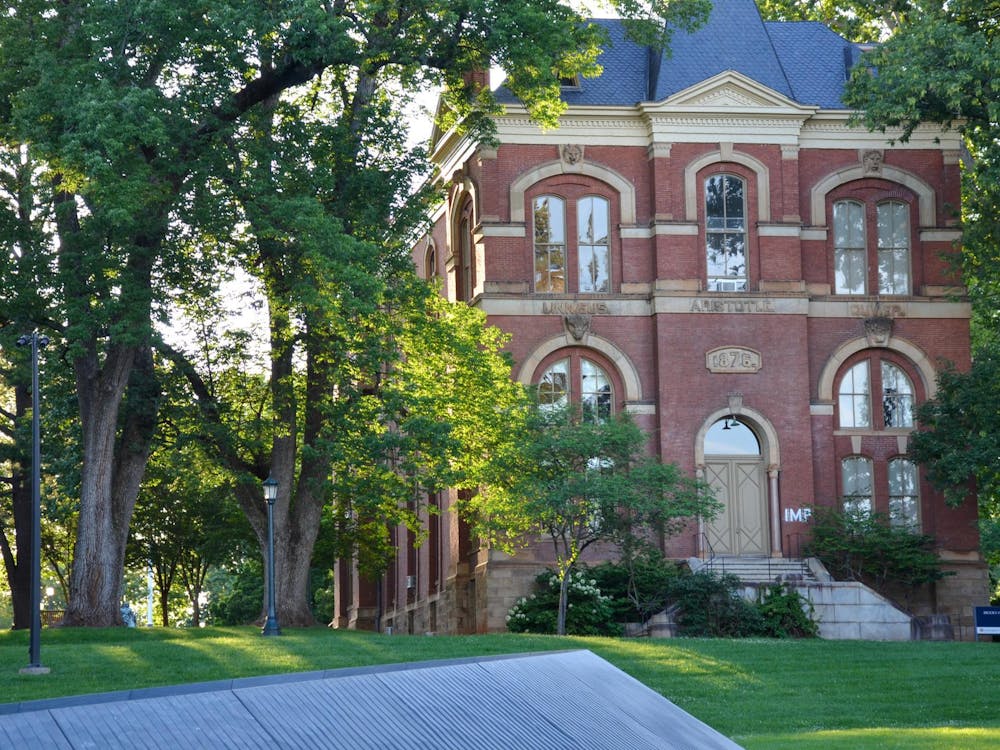It is hard to imagine information being transferred faster than the speed of light, but new technology in the field of Quantum Information Physics may make computers exponentially faster one day and allow them to crack complicated computer codes in minutes.
QI scientists have developed unique switches with unusual properties. The University Physics Dept. has shown interest in these new developments and hired new researchers to investigate possibilities for this new technology.
|
QI is a fairly new field, which was first developed in the 1990s, and is being studied at universities around the country.
Physics is divided into two main branches -- classical systems, those dealing with objects larger than an atom, and quantum systems, which deal with the behavior of extremely small particles at short distances and low energies.
Classical systems are intuitive but quantum systems are not, as they exist only near the extremes of ordinary experience where the normal laws of physics break down.
Classical systems have easily defined states. For example, a light switch has two states -- on or off. However, a two-state quantum system will sometimes be in both states at once. Surprisingly, this is like a light switch that is on and off at the same time.
Each quantum system, is called a "q-bit" because it is analogous to the smallest piece of information in a computer, a bit. A four q-bit system could include four atoms trapped by lasers and could be used as part of a quantum memory register in a quantum computer.
The main difficulty in dealing with q-bits is decoherence, a phenomenon that occurs when q-bits randomly interact with the environment and change from one state to another. In order to have an effective QI system -- the medium in which information is stored -- the particles that make up the switch must be in an isolated environment, which is very difficult to achieve.
Decoherence of quantum states is like a light switch turning off without anyone touching it, and this process causes quantum computers to give wrong answers.
QI is getting more recognition at the University. Quantum computing was one topic in the recent University of Virginia Institute for Microelectronics Future of Microelectronics Workshop on March 3. In addition, the physics department hired Assoc. Physics Prof. Oliver Pfister this year to do research on the subject and is attempting to hire another professor.
Pfister is currently setting up a quantum information laboratory to perform high precision measurements, not an easy task. "There are relatively few groups working on quantum information experiments because it is not only difficult to set up experimentally, but also to understand what you are doing theoretically," he said.
"Quantum systems have incredible potential," Pfister said. "Computer algorithms have been written for quantum computers that could crack the National Security Agency's most difficult codes in days or even hours. [With today's most advanced computers] it would take months or even years."
Outside the University exciting new research may provide new answers to the problem of decoherence by creating an isolated environment for quantum systems.
A group at the National Institute for Standards and Technology in Boulder, Colorado recently published a paper describing an experiment with four q-bits that did not decohere.
This experiment "can arguably be cited as the most impressive demonstration to-date of a quantum memory register," Associate Physics Prof. Hideo Mabuchi at the California Institute of Technology said.
The NIST group as well as other collaborations use relatively unstable systems such as atoms in a laser trap, or split laser beams.
Mabuchi is involved with a group that is performing new research with solid-state materials, combinations of molecules in a solid structure, including the semiconductors currently used in computer chips. Mabuchi's group is using solid-state materials to engineer quantum systems in which the q-bits do not decohere.
Many other collaborations are interested in this research because of its incredible potential, but do not know how to proceed.
"This would represent a great technical advance beyond the type of apparatus we currently use," Mabuchi said.
This research probably represents the future of quantum computing. "Ultimately, any functioning quantum computer would have to be made of solid-state material," Associate Physics Prof. Robert Jones said.
Although QI shows great promise in the fields of cryptography and computer information, it is not time to start worrying about national security yet. "To perform any useful calculations using a quantum computer, you need at least 1,000,000 q-bits. So far, the most q-bits that researchers can use at one time is four," Pfister said.
Despite the difficulties, many researchers believe in the promise of QI. "Critics say that we won't ever be able to factor the number 15 [one of the easiest calculations to make on a computer] using quantum computers," Pfister said. "But before the transistor and the integrated circuit, they also said that there was never going to be more than four computers in the entire world"






